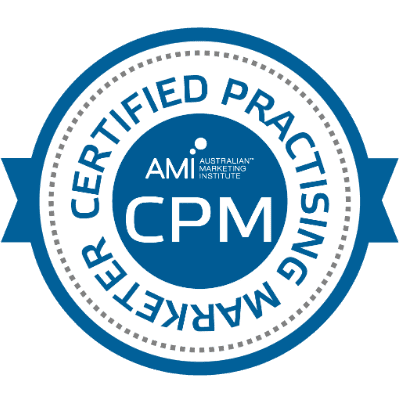How to Find the Best Organic Keywords
Everybody loves free advertising, right? Optimising your site for organic keywords is one of the best ways to harness the power of the Internet and gain new customer traffic.
Did you know that Google processes 3.5 billion searches per day? This is why search engine optimisation (SEO) is so important. One of the best things about search engine optimisation is that it doesn’t have to cost you anything.
By researching and optimising organic keywords, you’re helping increase your company’s visibility when they run a search.
When someone types a search query into Google, Google compares the keywords in their search to the keywords that it finds online. This is one of the major factors that impact the order that sites are displayed on a search engine results page.
Read on to learn how to determine the best organic keywords for driving traffic to your website.
Brainstorming Organic Keywords
There are several techniques that you can use to brainstorm organic keywords that your website is already optimised for.
Start by looking at your company website, specifically your landing pages and your blog posts. This will give you an idea of the topics that are covered and the keywords that are relevant to your company and product. Consider this list your seed keywords that you will use to grow your keywords plant.
Brainstorm additional related terms that people may search for when finding your website. For example, imagine you run a boutique hotel on the Sunshine Coast. Along with “boutique hotel Sunshine Coast”, your other keywords should include “where to stay on the Sunshine Coast” and “price of hotels Sunshine Coast”.
Use Google AdWords to Find More Keywords
Finally, turn to Google Analytics to get confirmation for the items on your organic seed keywords and suggestions for a few more.
In Google Analytics, even if you are not running paid campaigns, you can look at the search queries and other links that are driving traffic to your website. You should see some of your seed keywords on this list and add any that you haven’t already included.
While it would be great to optimize your website for as many keywords as possible, that just isn’t practical. If you are using Google AdWords, you can use the platform to test how effective each keyword is specifically for your business.
However, don’t worry if you’re not familiar with Google AdWords. There are other ways to research keywords and refine your seed keywords into a master keyword list.
Refining Your List of Potential Keywords
In order to refine your list of keywords, you need to turn to some keyword research tools. While this process can be a little time-consuming, using these tools will benefit you in the long run when your website is seeing more traffic from organic searches and more conversions.
There are a few different keyword research tools you need to take advantage of when planning your SEO strategy.
Optimise for Voice Search
Firstly, you need a tool that will help you with voice search. With voice search set to be the next big trend in digital marketing, you’ll save yourself time later on if you start thinking about it now. Voice search is changing SEO because we search in a different way when we’re speaking versus typing.
While typed queries are usually point-form sentences such as “boutique hotel Sunshine Coast”, voice searches are posed as questions, “What is the best boutique hotel on the Sunshine Coast?”. Look for an app that generates a list of questions based on the keywords you enter.
How Popular Are Your Keyword Phrases?
Next, you’ll want to use a tool that shows you the cost-per-click (CPC) for your keywords. Even though you’re targeting organic keywords, it is still important to research the CPC data for your list. Google assigns costs to keywords based on their search volume, popularity and the number of competitors.
The most expensive keyword phrase in the US is “best mesothelioma lawyer” (it’s a type of cancer from exposure to asbestos) at $935 per click. In fact, nearly 80% of the top 100 most expensive keyword phrases in the US are legal terms. This is because it is a highly competitive industry.
The cost of a keyword phrase is an indicator of how often people are searching for it and how competitive the industry it’s in is.
Determine the Difficulty of Ranking for Each Phrase
The final step in researching organic keywords is determining how difficult it will be to rank for each keyphrase.
Keyword research tools can determine this in a few different ways. One is to compare the number of searches versus the number of competitors. If there is a high search volume, and few competitors then it will be easier to rank for compared to a keyword with many competitors.
Keep in mind that it’s easier to rank for long-tail keywords so focus on something like “boutique hotels on the Sunshine Coast for families” or “boutique hotels on the Sunshine Coast with a rooftop pool” as opposed to just “hotels on Sunshine Coast”.
Once you’ve thoroughly researched your keyword list for these three metrics, you’re in a good position to start working on your on-page SEO.
How to Optimise Your Site for Organic Keywords
There are two important things to remember when optimising your website for organic search. The first is that there are no shortcuts and the second is that you need to be patient. If you’re looking for immediate results, then you should be focusing on paid search engine marketing, not increasing your organic reach.
In the past, marketers were able to trick Google with tactics like keyword stuffing, but the Google algorithm has become too smart for these tricks. Now, the only way to bring in organic traffic is to show Google that your website provides content that consumers will find useful. This is one of the reasons that every website has a blog now.
Google sees these articles as resources pieces related to their keywords. In our example, the hotel should think about writing travel guides about Sunshine Coast. They don’t need to be long, but even 500-1000 words about the best things to do as a family or the best places to eat will give them an SEO advantage over a competitor that doesn’t have these articles.
Besides creating great content, be sure to include your organic keywords in the following areas:
- blog post URLs
- first paragraph
- image files
- meta description
- subheadings
Is Your Website Optimised for Organic Search?
There are even online tools to help you assess your website’s SEO score. Don’t worry if you haven’t been following SEO practices. There’s nothing wrong with getting started even if your website has already been up and running for a few years.
Not sure how to get started optimising your website for organic keywords? Contact us to chat about how you can start improving your organic reach.







